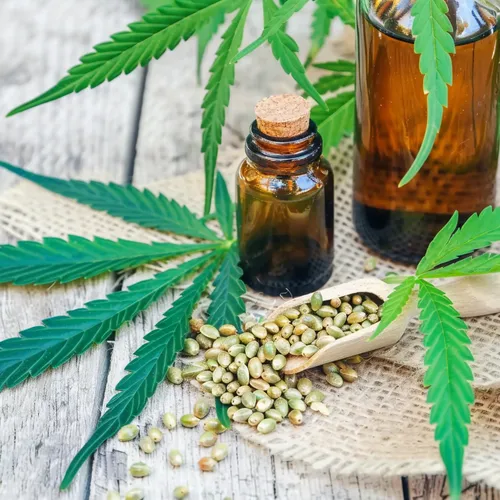Cannabidiol (CBD) seems to be everywhere these days. You may have seen it added to smoothies or coffee at your local cafe. There are even CBD-infused sports bras now! But what exactly is CBD and why is it becoming so popular? Let’s take a closer look.
CBD vs. Cannabis
CBD is a chemical compound found in cannabis plants like marijuana and hemp. However, unlike the better-known THC, CBD does not cause a “high” or intoxicating effect. According to the World Health Organization, CBD exhibits no abuse or dependence potential. But while CBD is an essential component of medical marijuana, it can also be derived directly from non-psychoactive hemp.
Is CBD Legal?
It is legal to sell CBD products in the UK, provided they limit controlled cannabinoids like tetrahydrocannabinol (THC) to no more than 1 mg. However, meeting the THC threshold is merely one requirement among others. The UK’s Food Standards Agency (FSA) has mandated since 2020 that CBD-infused foods and beverages must receive Novel Food authorisation before hitting the shelves.
In the United States, the legal status of CBD has been murky, but the passage of the 2018 Farm Bill finally made hemp-derived CBD completely legal nationwide. Previously, many states allowed CBD use without a medical license, but federal law still considered it illegal just like marijuana. Now hemp and hemp-derived products are treated differently from cannabis under the law, making CBD essentially legal in all 50 states.
Potential Health Benefits
While more research is still needed, preliminary studies suggest CBD may help with:
- Anxiety relief
- Better sleep
- Chronic pain reduction
- Lowering addiction cravings
- Reducing inflammation
The strongest evidence, however, is for CBD’s effectiveness in treating childhood epilepsy syndromes like Dravet and Lennox-Gastaut, which respond poorly to antiseizure medications. The FDA has approved the first CBD-based epilepsy medicine called Epidiolex for these conditions.
Is It Safe?
Side effects of CBD can include nausea, fatigue, and irritability. CBD can also interact with other medications you may be taking. But a major concern is lack of regulation. Since CBD products are largely unregulated, there’s no guarantee you’re getting what the label claims. Dosage is also unclear.
While more clinical trials in humans are still needed, CBD appears to be a promising and relatively safe natural treatment option. Just be sure to talk with your doctor before trying it, especially if you take any medications.
How to Take CBD
CBD is sold in a variety of forms including oils, capsules, patches, vapes, and topical creams or gels. If you want to target specific areas of pain or inflammation, a topical may work best. However, tinctures and sprays allow CBD to enter the bloodstream quickly.
Outside the US, an oral spray containing CBD and THC is approved in several countries for multiple sclerosis and cancer pain. Within the US, a CBD drug was approved for childhood epilepsies.
The Bottom Line
While hype outpaces evidence in some cases, CBD appears to be a promising treatment option for several health issues, especially epilepsy. Speak with your doctor if you’re interested in trying it for anxiety, insomnia, chronic pain or other uses. And be sure to purchase from reputable sources to ensure quality and accuracy. With continued research, CBD’s full therapeutic potential may soon be unlocked.
Photo: “CBD” by Anthony Cunningham for Zoom Testing
Zoom Testing is a leading UK drug testing company and a supplier of Drug Test Kits.





